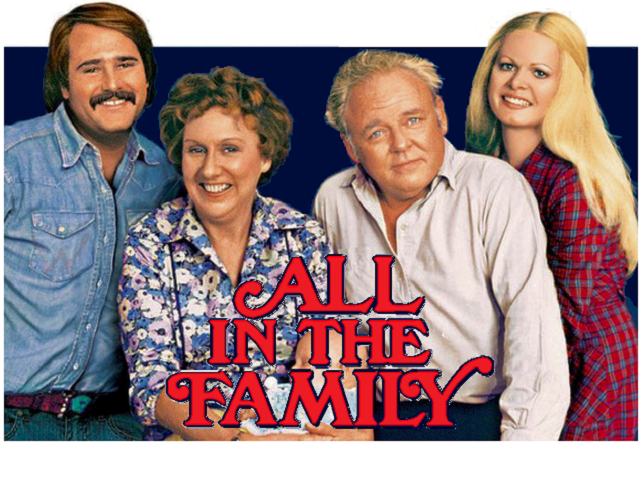
When All in the Family debuted in 1971, it wasn’t just another sitcom—it was a seismic shift in the landscape of American television. The show, created by Norman Lear, boldly confronted the taboo issues of its time, ranging from racism to gender roles, politics, and even the war in Vietnam. Unlike other comedies of its era, which often stayed within the safe confines of light-hearted humor, All in the Family was unapologetically raw, unfiltered, and, at times, shocking. It brought a new level of social awareness to prime time TV, pushing boundaries in ways that would influence sitcoms and dramas for decades to come.
Breaking New Ground: A Revolutionary Format
At its core, All in the Family wasn’t just about laughs; it was about real conversations. It presented a family dynamic that was unlike anything viewers had seen before—led by the abrasive, bigoted Archie Bunker, a character who would go on to become one of the most iconic figures in television history. Archie wasn’t the lovable, all-American dad or the wise patriarch many had come to expect from family sitcoms. Instead, he was flawed, controversial, and deeply entrenched in the prejudices of his time.
The show’s bold format was simple: explore the tensions of a working-class family with unapologetic honesty. Archie’s racist, sexist, and narrow-minded views clashed regularly with his wife, Edith, who was often the voice of reason, and their progressive daughter, Gloria, who challenged her father’s outdated beliefs. This combination of characters created a rich narrative full of humor, tension, and, most importantly, discussions on social issues that had previously been avoided on TV.
Tackling Taboo Topics
What set All in the Family apart from other sitcoms was its willingness to tackle some of the most contentious issues in American society. In an era when racial discrimination, the women’s liberation movement, and the Vietnam War were hot-button topics, the show used humor to explore these issues with a directness that had never been seen before. Episodes like “The Draft Dodger,” which dealt with the complexities of patriotism and war, or “The Bunker Goes to the White House,” which parodied political figures, brought real-world conversations into the home.
While some critics and viewers were shocked by the show’s boldness, many others praised its courage. The humor in All in the Family wasn’t about making light of serious topics—it was about exposing the prejudices and hypocrisies that existed in society and forcing audiences to confront them head-on.
The Legacy of All in the Family
The show’s influence on American television cannot be overstated. It set the stage for future shows that didn’t shy away from controversy, such as The Simpsons, South Park, and Married… with Children. Its impact extended beyond just sitcoms, inspiring dramas that blended entertainment with social commentary.
What’s remarkable is that, even decades after its original run, All in the Family continues to resonate with audiences. The characters, the issues, and the humor still feel fresh and relevant in today’s world, proving that the more things change, the more they stay the same.
All in the Family remains a pioneering force in television history, and its groundbreaking approach to blending humor and social critique continues to influence TV today. The show was more than just a comedy—it was a cultural touchstone that challenged societal norms and changed the way TV was made forever.
